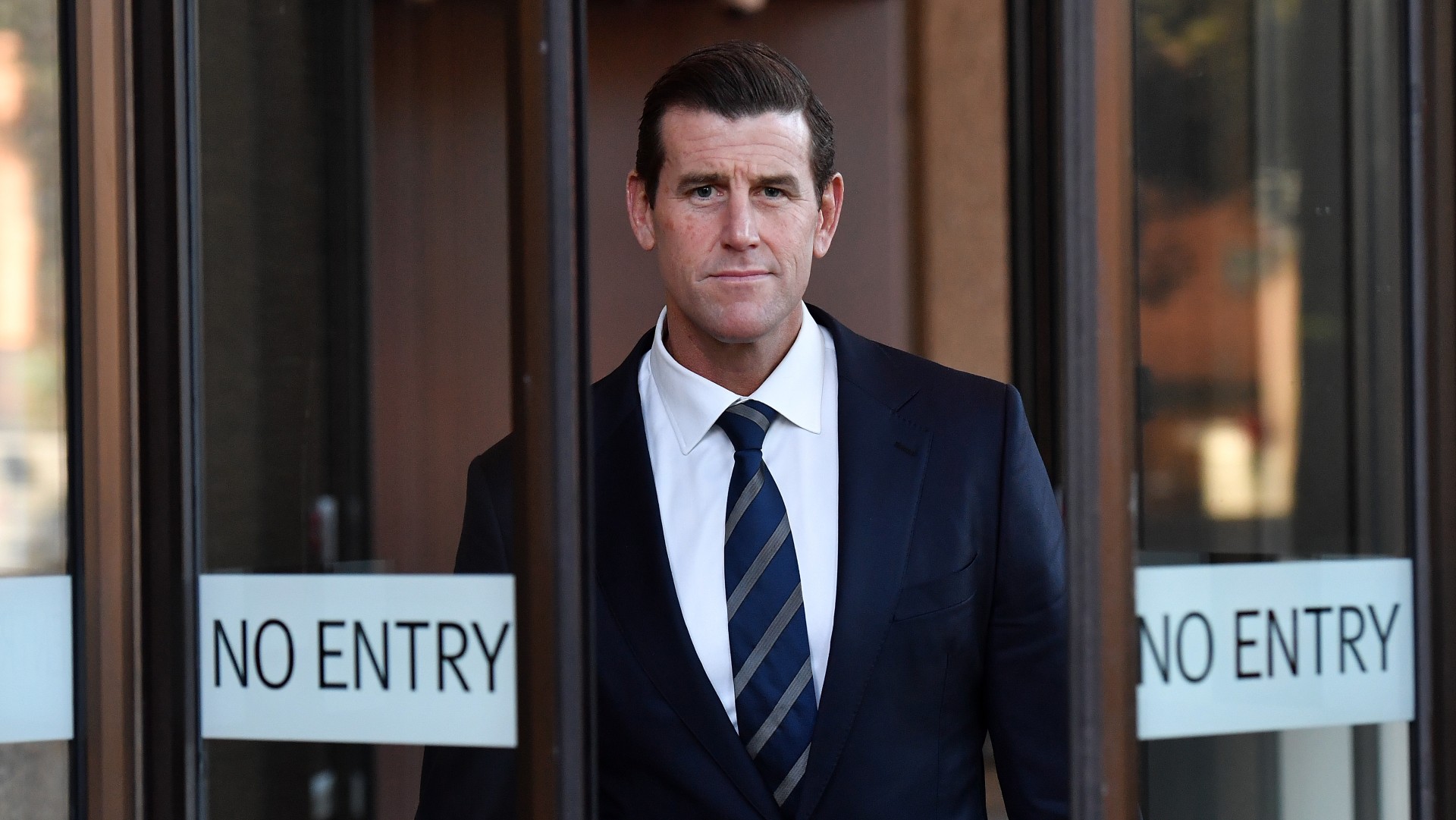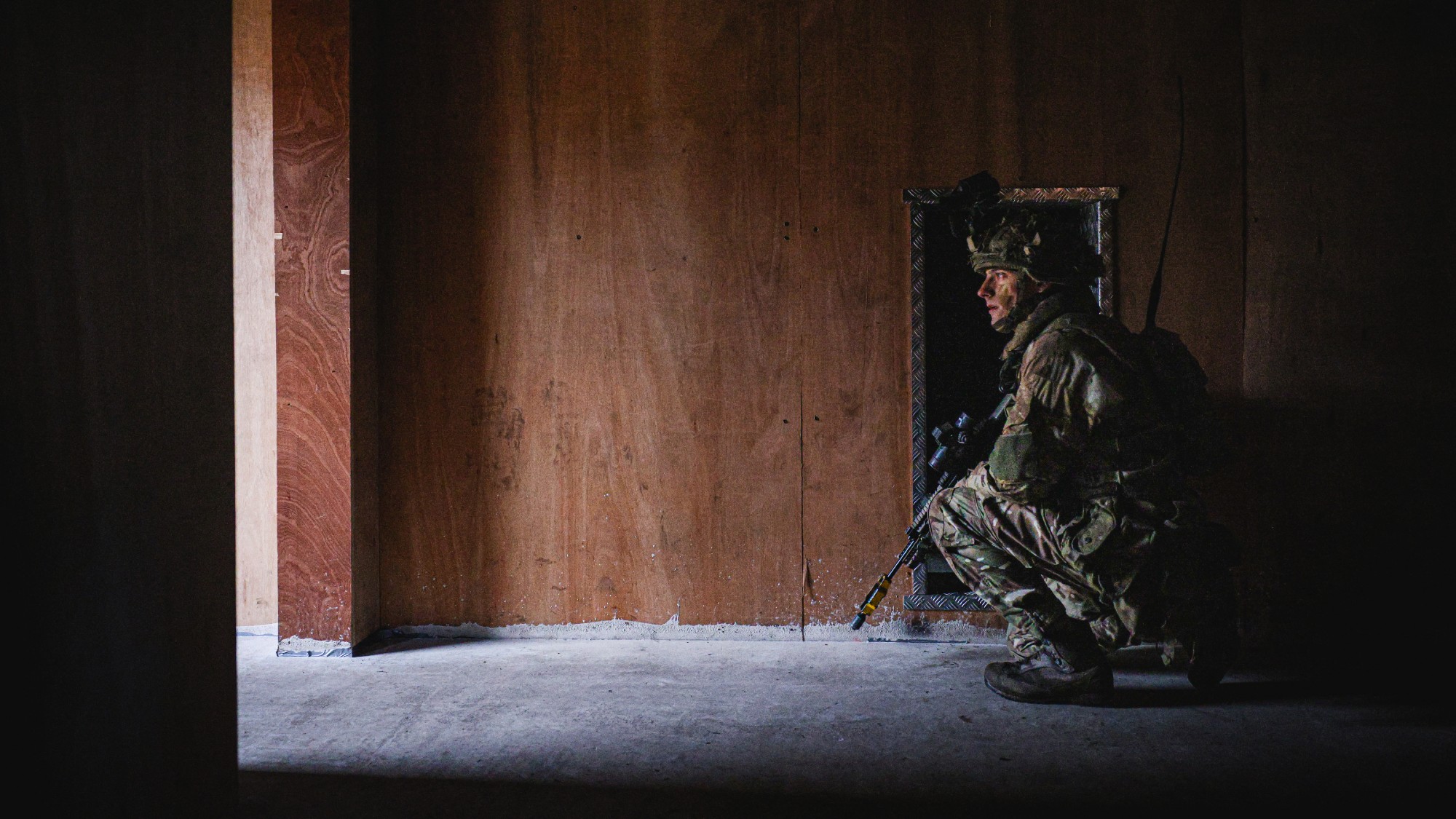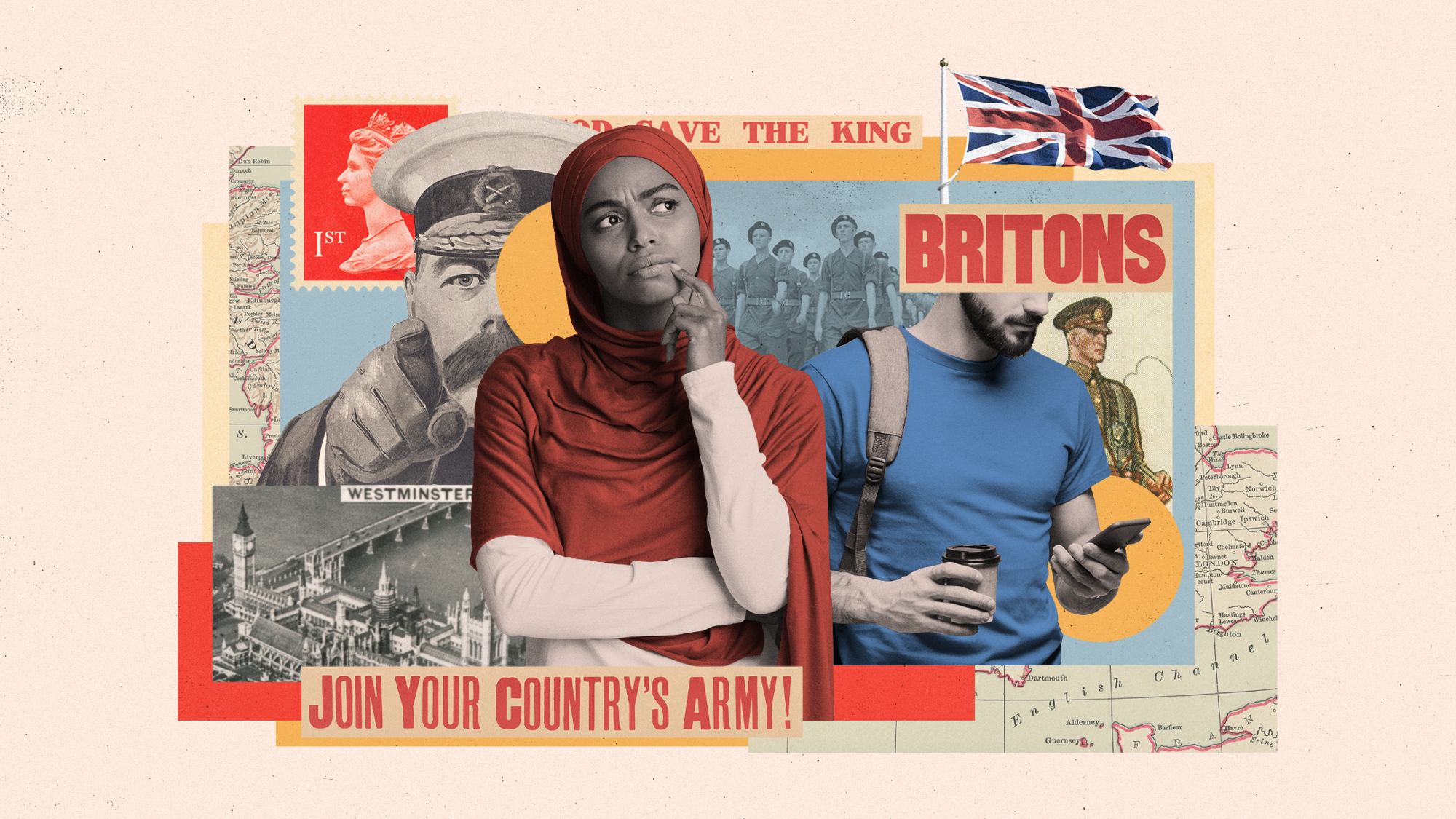Ben Roberts-Smith: will more Afghanistan war crimes trials follow?
Former SAS soldier lost defamation case against Australian newspapers that accused him of murder

A free daily email with the biggest news stories of the day – and the best features from TheWeek.com
You are now subscribed
Your newsletter sign-up was successful
Australia’s most decorated soldier, Ben Roberts-Smith, has lost a defamation case against newspapers that accused him of war crimes in Afghanistan in a landmark ruling with widespread implications for future criminal trials.
The civil trial was “the first time a court has assessed accusations of war crimes by Australian forces”, said BBC News. The case – “dubbed by some as ‘the trial of the century’ – lasted 110 days and is thought to have cost up to A$25 million (£13.2 million).
Roberts-Smith, 44, who served as a corporal in the Special Air Service (SAS) and with the Australian Defence Force (ADF), “shot to fame in 2011”, said The Washington Post, when he was awarded the Victoria Cross for saving troops from the Taliban. The medal earned the 6ft 8in soldier an invitation to Queen Elizabeth II’s funeral last year.
The Week
Escape your echo chamber. Get the facts behind the news, plus analysis from multiple perspectives.

Sign up for The Week's Free Newsletters
From our morning news briefing to a weekly Good News Newsletter, get the best of The Week delivered directly to your inbox.
From our morning news briefing to a weekly Good News Newsletter, get the best of The Week delivered directly to your inbox.
But the “myth began to unravel” in 2018, when three Australian newspapers began reporting that he had been involved in the unlawful killing of six Afghans while serving between 2009 and 2012.
Roberts-Smith sued The Sydney Morning Herald, The Age and The Canberra Times in 2021, denying wrongdoing in five killings and claiming that the sixth had not happened.
What did the papers say?
Four of the six murder allegations were “substantially true”, decided Federal Court Justice Anthony Besanko, in “a landmark defamation ruling”, said the 9news site. “The applicant broke the moral and legal rules of military engagement and is therefore a criminal,” ruled the judge.
Roberts-Smith has not been charged with any criminal offences. “We will consider the lengthy judgment that his honour has delivered and look at issues relating to an appeal,” his lawyer, Arthur Moses, said.
A free daily email with the biggest news stories of the day – and the best features from TheWeek.com
Roberts-Smith is “a war criminal, a bully and a liar”, said Nick McKenzie, one of the reporters who wrote the stories, alongside Chris Masters and David Wroe. “Today is a day of some small justice for the Afghan victims.”
The trial “raised fresh allegations of atrocities committed by Australian special forces in Afghanistan”, said The Washington Post. It included “often startling” testimony from nearly 40 witnesses, including Roberts-Smith’s ex-wife, who alleged that he had buried evidence in the garden.
Roberts-Smith’s legal defence – that he was the victim of jealous colleagues – “transformed the defamation proceedings into a de facto war crimes trial”, the paper said.
According to the judge’s summary, it is “substantially true” that Roberts-Smith murdered an innocent farmer by kicking him off a cliff and ordering soldiers to shoot him. In another case, he reportedly machine-gunned a captured Taliban fighter in the back, before taking his prosthetic leg to Australia for his troops to drink beer from.
The case “has been a reminder of the failures of foreign forces in Afghanistan”, wrote Shadi Khan Saif, a Melbourne-based Afghan journalist, for The Guardian, and of “how disengaged and indifferent Australians can be towards events that happen in the rest of the world”.
But in the region of Afghanistan where Roberts-Smith and US coalition forces fought the Taliban before they retook power in 2021, “the scars of the war inflicted by an ‘invading army’ are, for many, much deeper than those created by the oppressive regime”.
The story “goes on beyond this judgment”, said the executive editor of The Age and The Herald, Tory Maguire. “We will continue to hold people involved in war crimes to account. The responsibility for these atrocities does not stop with Ben Roberts-Smith.”
What next?
Roberts-Smith, who did not attend the judgment in Sydney, now faces “a massive legal bill, possible war crimes prosecution, and career ruin”, said Daily Mail Australia, as some politicians called for him “to be stripped of his medals”.
The case has been adjourned until 29 June to allow for consideration of costs.
The trial is “just a precursor to the major series of war crimes investigations, allegations, prosecutions, and possibly convictions that we’ll see over the next few years”, war historian Peter Stanley told BBC News. The case was “a litmus test” for allegations of Australian wrongdoing.
An investigation into alleged war crimes by the ADF during the war in Afghanistan, commonly known as the Brereton report, published its findings in 2020. It found evidence of 39 murders of civilians and prisoners, by or instructed by the Australian special forces, and subsequently covered up.
In March this year, a former SAS soldier named Oliver Schulz became the first current or former ADF member to be charged with “war crime – murder” under Australian law, for allegedly shooting an unarmed Afghan in 2012. The charge carries a maximum penalty of life imprisonment.
The Office of the Special Investigator, created in response to the Brereton report, is now focusing on Roberts-Smith and two other SAS soldiers, according to The Age.
The US military warned Australia’s defence chief that allegations of war crimes in Afghanistan may affect future cooperation with the SAS, reported ABC.
Harriet Marsden is a senior staff writer and podcast panellist for The Week, covering world news and writing the weekly Global Digest newsletter. Before joining the site in 2023, she was a freelance journalist for seven years, working for The Guardian, The Times and The Independent among others, and regularly appearing on radio shows. In 2021, she was awarded the “journalist-at-large” fellowship by the Local Trust charity, and spent a year travelling independently to some of England’s most deprived areas to write about community activism. She has a master’s in international journalism from City University, and has also worked in Bolivia, Colombia and Spain.
-
 The ‘ravenous’ demand for Cornish minerals
The ‘ravenous’ demand for Cornish mineralsUnder the Radar Growing need for critical minerals to power tech has intensified ‘appetite’ for lithium, which could be a ‘huge boon’ for local economy
-
 Why are election experts taking Trump’s midterm threats seriously?
Why are election experts taking Trump’s midterm threats seriously?IN THE SPOTLIGHT As the president muses about polling place deployments and a centralized electoral system aimed at one-party control, lawmakers are taking this administration at its word
-
 ‘Restaurateurs have become millionaires’
‘Restaurateurs have become millionaires’Instant Opinion Opinion, comment and editorials of the day
-
 Munich Security Conference: a showdown between Europe and Trump?
Munich Security Conference: a showdown between Europe and Trump?Today’s Big Question Report suggests European leaders believe they can no longer rely on the US for military support – but decoupling is easier said than done
-
 Taiwan eyes Iron Dome-like defence against China
Taiwan eyes Iron Dome-like defence against ChinaUnder the Radar President announces historic increase in defence spending as Chinese aggression towards autonomous island escalates
-
 Is conscription the answer to Europe’s security woes?
Is conscription the answer to Europe’s security woes?Today's Big Question How best to boost troop numbers to deal with Russian threat is ‘prompting fierce and soul-searching debates’
-
 Operation Rubific: the government's secret Afghan relocation scheme
Operation Rubific: the government's secret Afghan relocation schemeThe Explainer Massive data leak a 'national embarrassment' that has ended up costing taxpayer billions
-
 How will the MoD's new cyber command unit work?
How will the MoD's new cyber command unit work?Today's Big Question Defence secretary outlines plans to combat 'intensifying' threat of cyberattacks from hostile states such as Russia
-
 The state of Britain's Armed Forces
The state of Britain's Armed ForcesThe Explainer Geopolitical unrest and the unreliability of the Trump administration have led to a frantic re-evaluation of the UK's military capabilities
-
 Is the 'coalition of the willing' going to work?
Is the 'coalition of the willing' going to work?Today's Big Question PM's proposal for UK/French-led peacekeeping force in Ukraine provokes 'hostility' in Moscow and 'derision' in Washington
-
 Would Gen Z fight for 'racist' Britain?
Would Gen Z fight for 'racist' Britain?Today's Big Question Only 11% of people aged 18-27 say they would fight for UK, survey by The Times reveals, amid low levels of pride and 'declines in confidence in institutions'